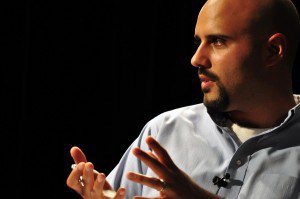The most repeated commands in the Bible are not warnings or restrictions. They are calls to “praise the Lord” and “do not be afraid.” These commands take different forms such as “give thanks,” “rejoice,” and “fear not” throughout Scripture, but the emphasis remains the same ‒ God’s desire is for us to be full of joy and gratitude, but He knows that fear is always lurking and ready to hijack our souls. Fear is the enemy of gratitude.
Biology tells us that when a creature is afraid, it will respond in two ways ‒ fight or flight. It will either try to overpower the threat or escape from it. Both responses are ways of seeking control over a dangerous situation. People are no different. When we are afraid, we try to gain control over the world in order to feel safe again. This leads to two problems.
First, fear drives us to take control rather than trust God. If we believe it’s our strength and wisdom that is keeping us safe, what need is there for gratitude toward God? This posture of self-reliance is all too common today and may explain why fewer people incorporate worship and thanksgiving to the Lord as regular practices.
Second, fear prevents us from recognizing that control is an illusion. No amount of control will ever be enough to guarantee our safety, and no degree of control will fully take away our fears. Whatever solace we may gain from our attempts at control may be nothing more than a placebo. We may be fooling ourselves into thinking we are safe when we are not.
Jesus illustrated the illusion of control with a story about a man with great wealth and storehouses of grain. The man said to himself, “You have ample goods laid up for many years; relax, eat, drink, be merry.” But God called the man a fool. “This night your soul is required of you, and the things you have prepared, whose will they be?” (Luke 12:19-20). Jesus revealed that the sense of security we gain from wealth is an illusion.
Our desire for safety is not wrong, it is merely misplaced. We look to protect ourselves from the uncertainty of this world by seeking control ‒ often by accumulating wealth ‒ but the peace we are longing for cannot be found in money. This is why the writer of Hebrews connects a life freed from a love of money with the promise of God to never leave us nor forsake us. Our fearful instinct is to find safety in wealth rather than in Christ. Sin tells us to pursue control rather than gratitude.
If we truly believe that God is with us and that He will never leave us, then what can make us afraid? When we come to recognize the illusion of control and embrace the promise of God’s never-ending presence and care, we unlock the door to a life of joyful gratitude.
Reflect: Think about a time when you felt the least amount of control. How did that realization affect your faith? What fears are currently blocking your ability to express gratitude to God?
(Excerpt from Whole-Life Generosity Devotional, used with permission from GenerousChurch).


 Skye Jethani
Skye Jethani
